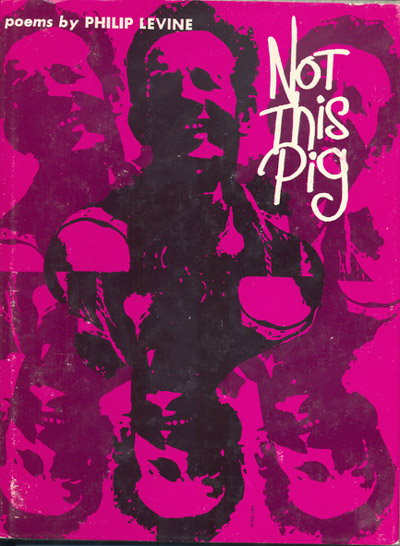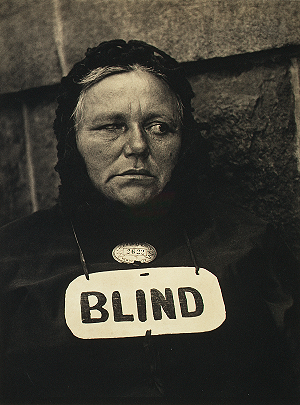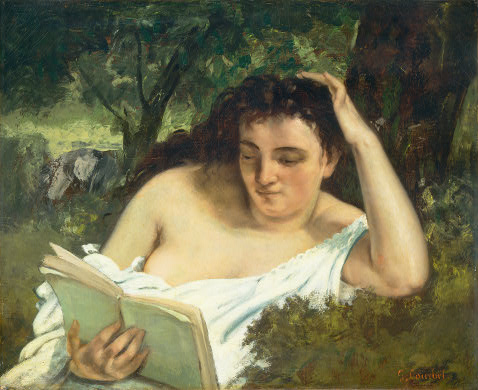When my father died, I knew I would metabolize my grief and honor his memory by being the best father I could be. When my mother died I knew suddenly what it really meant to feel like a motherless child. The path of transformation was not so obvious then. Maybe I am still looking for it. Maybe I’ve been on the path all along and have not yet learned to name it. Wherever it leads, it involves patience.
I planted a lilac over my mother’s ashes in the spring of her passing. I waited year after year for it to bloom. After seven years it did. In the eighth year, no flowers. A hard freeze may have nipped them in the bud. The lilac is a tree now, and a month ago when it began to lead I regretted that I hadn’t pruned it over the winter. I’d given up on its blooming. Then I walked into my garden yesterday morning before heading off to work. That fragrance suffused the still, frosted air. The lilac tree was crowned with pale blue flowers, a brilliant foil to the white flowering crab apple shimmering beyond it.
The cultivar is called Abraham Lincoln. I chose it with nostalgia for my grandfather’s Mr. Lincoln roses, and Walt Whitman’s poem. My mother quoted that poem whenever she cut lilacs in the spring:
1
When lilacs last in the dooryard bloom’d,
And the great star early droop’d in the western sky in the night,
I mourn’d, and yet shall mourn with ever-returning spring.Ever-returning spring, trinity sure to me you bring,
Lilac blooming perennial and drooping star in the west,
And thought of him I love.2
O powerful western fallen star!
O shades of night–O moody, tearful night!
O great star disappear’d–O the black murk that hides the star!
O cruel hands that hold me powerless–O helpless soul of me!
O harsh surrounding cloud that will not free my soul.3
In the dooryard fronting an old farm-house near the white-wash’d palings,
Stands the lilac-bush tall-growing with heart-shaped leaves of rich green,
With many a pointed blossom rising delicate, with the perfume strong I love,
With every leaf a miracle–and from this bush in the dooryard,
With delicate-color’d blossoms and heart-shaped leaves of rich green,
A sprig with its flower I break.4
In the swamp in secluded recesses,
A shy and hidden bird is warbling a song.Solitary the thrush,
The hermit withdrawn to himself, avoiding the settlements,
Sings by himself a song.Song of the bleeding throat,
Death’s outlet song of life, (for well dear brother I know,
If thou wast not granted to sing thou wouldst surely die.)
Read more: When Lilacs Last in the Dooryard Bloom’d.
![gustave_caillebotte_paris_street_rainy_day Gustave Caillebotte. Paris Street, Rainy Day (La Place de l’Europe, temps de pluie). 1877. Oil on canvas. Art Institute of Chicago. [Source: Wikimedia Commons]](../wp-content/uploads/2009/02/gustave_caillebotte_paris_street_rainy_day_1877_wiki.jpg)
![Fog at Isle Royale [Source: wildmengoneborneo.com] Fog at Isle Royale [Source: wildmengoneborneo.com]](../wp-content/uploads/2008/04/isle_royale_fog.jpg)
 If there is an emerging genetic underclass, I could run for class president or class clown. Read more in
If there is an emerging genetic underclass, I could run for class president or class clown. Read more in 

I thought you might like Amy Lowell’s poem on lilacs published in What’s O’Clock (1925),from
a collection that won the Pulitzer Prize for poetry in 1926, after Amy’s death.
Lilacs,
False blue,
White
Purple,
Colour of lilac,
Your great puffs of flowers
Are everywhere in this my New England.
Among your heart-shaped leaves
Orange orioles hop like music-box birds and sing
Their little weak soft songs;
In the crooks of your branches
The bright eyes of song sparrows sitting on spotted eggs
Peer restlessly through the light and shadow
Of all Springs.
Lilacs in dooryards
Holding quiet conversations with an early moon;
Lilacs watching a deserted house
Settling sideways into the grass of an old road;
Lilacs, wind-beaten, staggering under a lopsided shock of bloom
Above a cellar dug into a hill.
You are everywhere.
You were everywhere.
You tapped the window when the preacher preached his sermon,
And ran along the road beside the boy going to school.
You stood by pasture-bars to give the cows good milking,
You persuaded the housewife that her dish pan was of silver.
And her husband an image of pure gold.
You flaunted the fragrance of your blossoms
Through the wide doors of Custom Houses-
You, and sandal-wood, and tea,
Charging the noses of quill-driving clerks
When a ship was in from China.
You called to them: “Goose-quill men, goose-quill men,
May is a month for flitting.”
Until they writhed on their high stools
And wrote poetry on their letter-sheets behind the propped-up ledgers.
Paradoxical New England clerks,
Writing inventories in ledgers, reading the “Song of Solomon” at night,
So many verses before bed-time,
Because it was the Bible.
The dead fed you
Amid the slant stones of graveyards.
Pale ghosts who planted you
Came in the night-time
And let their thin hair blow through your clustered stems.
You are of the green sea,
And of the stone hills which reach a long distance.
You are of the elm-shaded streets with little shops where they sell kites and marbles,
You are of great parks where everyone walks and nobody is at home.
You cover the blind sides of greenhouses
And lean over the top to say a hurry-word through the glass
To your friends, the grapes, inside.
Lilacs,
False blue,
White
Purple,
Colour of lilac,
You have forgotten your Eastern origin,
The veiled women with eyes like panthers,
The swollen, aggressive turbans of jewelled Pashas.
Now you are a very decent flower,
A reticent flower,
A curiously clear-cut, candid flower,
Standing beside clean doorways,
Friendly to a house-cat and a pair of spectacles,
Making poetry out of a bit of moonlight
And a hundred or two sharp blossoms.
Maine knows you,
Has for years and years;
New Hampshire knows you,
And Massachusetts
And Vermont.
Cape Cod starts you along the beaches to Rhode Island;
Connecticut takes you from a river to the sea.
You are brighter than apples,
Sweeter than tulips,
You are the great flood of our souls
Bursting above the leaf-shapes of our hearts,
You are the smell of all Summers,
The love of wives and children,
The recollection of the gardens of little children,
You are the State Houses and Charters
And the familiar treading of the foot to and fro on a road it knows.
May is lilac here in New England,
May is a thrush singing “Sun up!” on a tip-top ash-tree,
May is white clouds behind pine-trees
Puffed out and marching upon a blue sky.
May is a green as no other,
May is much sun through small leaves,
May is soft earth,
And apple-blossoms,
And windows open to a South wind.
May is full light wind of lilac
From Canada to Narragansett Bay.
Lilacs,
False blue,
White
Purple,
Colour of lilac.
Heart-leaves of lilac all over New England,
Roots of lilac under all the soil of New England,
Lilacs in me because I am New England,
Because my roots are in it,
Because my leaves are of it,
Because my flowers are for it,
Because it is my country
And I speak to it of itself
And sing of it with my own voice
Since certainly it is mine.
Beautiful. I never thought of Amy Lowell in the Whitman tradition, but everything about this poem with its loose, passionate, grounded lines proclaims that she is.